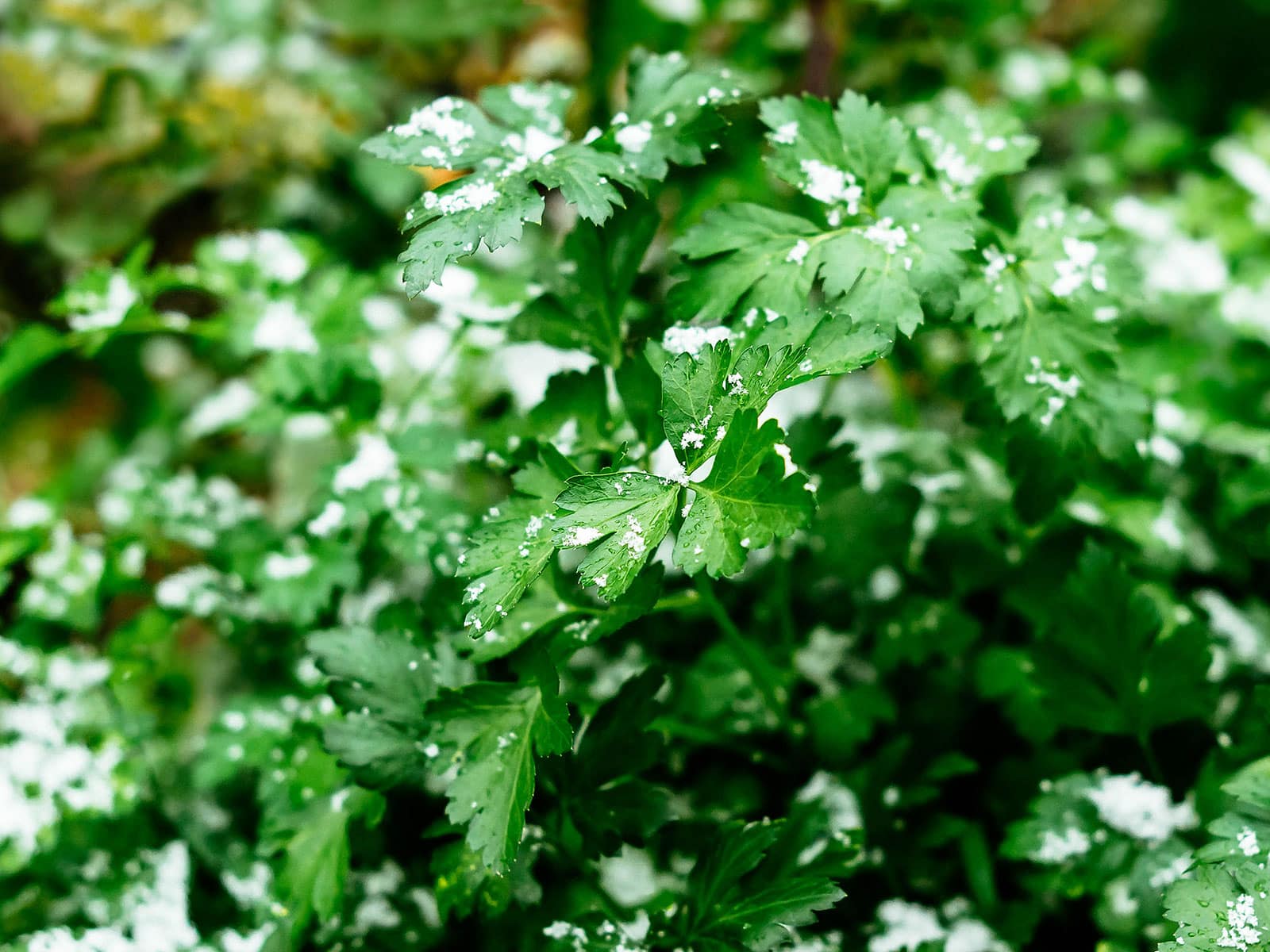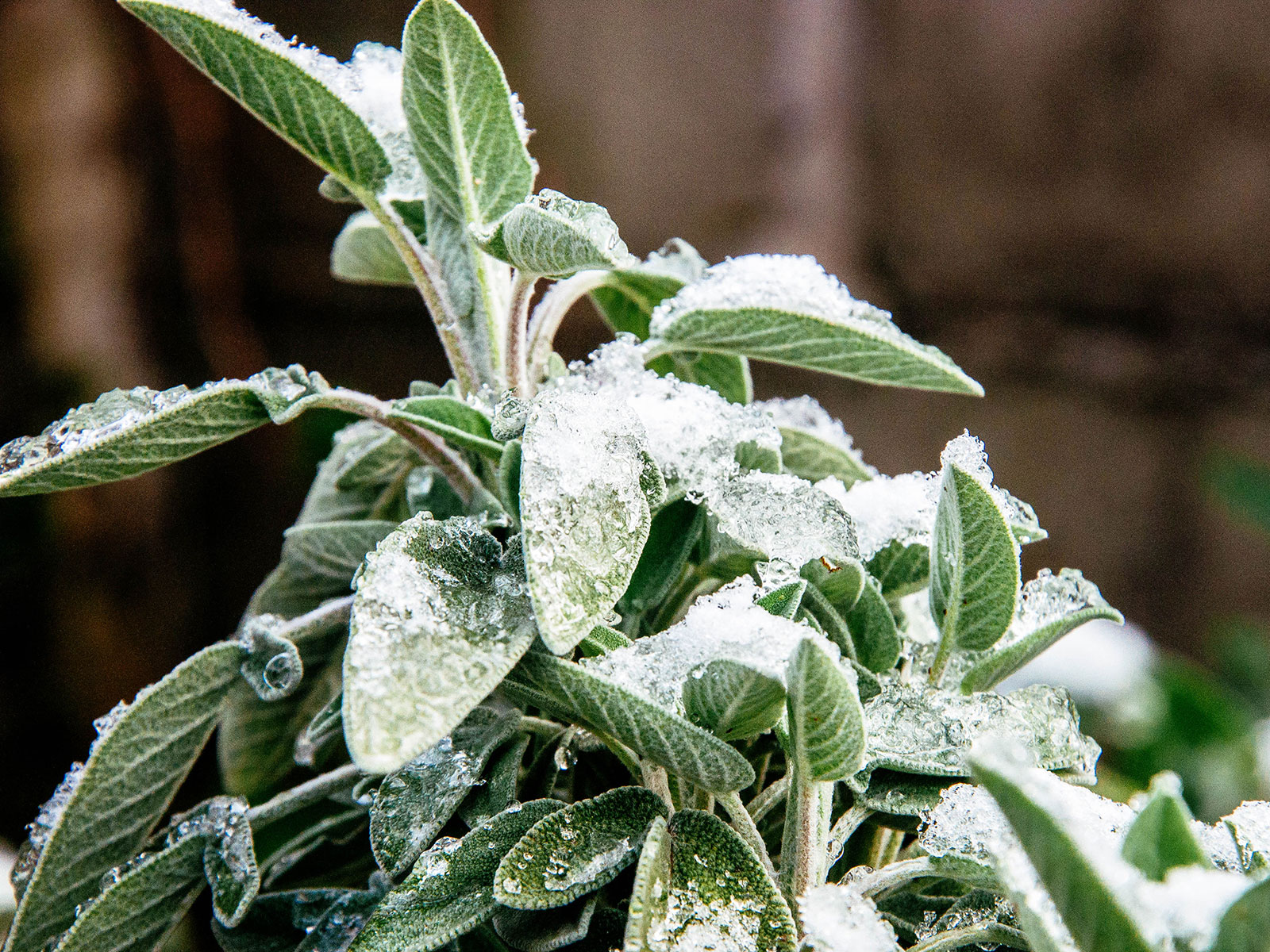Most of the widespread herbs we develop at residence are native to the Mediterranean, which suggests in colder climates, they acquired’t make it through frost and snow. Nonetheless are you conscious that fairly loads of culinary herbs can really overwinter (considerably with significantly safety) or die as soon as extra and return in spring?
I’ve two perennial herb beds in my zone 5 microclimate that come as soon as extra yr after yr, and all I do is mulch the beds and add a midweight frost supplies after the primary arduous freeze. The variability (cultivar) performs an necessary carry out, in any case—rosemary, a kind of aforementioned Mediterranean herbs, is often hardy to zones 8 and up. Nonetheless in case you plan forward and plant the appropriate alternative, you in all probability can develop rosemary year-round all one of the best ways proper all the way down to zone 5!
Disclosure: Should you retailer from my article or make a purchase order order order through really one amongst my hyperlinks, I would pay money for commissions on among the many many merchandise I want to recommend.
My favourite place to purchase dwell herb vegetation on-line (after I’m in quest of a singular alternative) is resolve. They carry a wide selection of herbs that I’ve under no circumstances seen anyplace else! Nonetheless in case that you must start out your vegetation from seed, you might’t go unsuitable with Botanical Pursuits.
Correct proper right here’s what I develop or have grown outside in winter, with recommendations on defending your vegetation in order that they stand the next likelihood of surviving the freeze.


Zone 3 herbs
These are among the many many hardiest herbs you’ll uncover contained in the yard! (I’ve even picked lovage with a dusting of snow on its leaves.)
- Lovage
- Hyssop
- Russian tarragon
- Chervil
- Candy cicely
- Yarrow
- Horseradish
Zone 4 herbs
Together with the zone 3 herbs above, you may also develop:
- Mint
- Onion chives
- Garlic chives
- French tarragon
- Thyme
- Sage
- Variegated marjoram
- Mitsuba
- Roman chamomile
- Anise hyssop
- Sorrel
Zone 5 herbs
The rules will get longer as we swap as rather a lot as zone 5. Along with the herbs in zones 3 and 4, you in all probability can develop:
- Parsley
- Oregano
- Lemon balm
- Winter savory
- Bronze fennel
- Lavender
- German chamomile
- Salad burnet
- Rosemary (with safety—try Arp, Hill’s Hardy, or Alcade)
Zone 6 herbs
All the stuff you in all probability can develop in zones 5 and beneath, you in all probability can develop in zone 6. Nonetheless you get significantly leeway correct proper right here on account of the extra delicate herbs can overwinter with no frost cowl.
Chilly-hardy rosemary varieties like Arp, Hill’s Hardy, and Alcade will often make it through a difficult frost with solely an excellent mulch layer. Inside the event that they die as soon as extra, they’ll reemerge in spring. If you would like the vegetation to remain harvestable in winter, develop them beneath a low tunnel, in a chilly physique, or within the path of a wall, the place they income from the mirrored warmth.


The right way to confirm your cold-hardy herbs come as soon as extra in spring
By the use of trial and error, I’ve discovered that even the hardiest herb acquired’t bounce as soon as extra for 3 massive causes: lack of moisture, chilly dry air, or not ample snow. (Uncover how temperature is not a part, so long as the plant is suitable in your zone.)
If there’s no rain contained in the forecast, be sure to water your vegetation recurrently, even through winter. That is virtually undoubtedly the number-one operate many vegetation don’t make it!
The second operate is publicity to the chilly, desiccating winds of winter. Wind (and wind chill) causes speedy moisture loss in plant tissue, resulting in dehydration, leaf scorch, and at last dying.
Likelihood is you will avoid this widespread winter hurt by watering efficiently (so your vegetation are capable of replenish the moisture they lose) and via the utilization of defending measures, like planting windbreaks (taller shrubs or hedges spherical your herbs) or defending them with frost supplies.
Helpful
Frost safety
Though it sounds counterintuitive, you furthermore need quite a lot of snow to assist your vegetation survive the chilly! Snow is an environment friendly insulator that protects the roots and crowns of your herbs, nonetheless when it melts off rapidly or doesn’t snow for weeks, heap on a thick layer of pure mulch. Likelihood is you will get ingenious correct proper right here (I usually use outdated Christmas boughs) or simply shield a stockpile of straw, picket chips, or pine needles to make the most of as wanted.
Frequently mulch your vegetation efficiently, even in case you get snow. It helps shield weeds at bay in early spring and provides dietary nutritional vitamins to the soil on account of it breaks down over winter. As rapidly as a result of the native climate warms up, you might want to remove among the many many heavy mulch layer (so that you just solely have a pair inches on prime) and let the soil breathe a bit.
